AARP Hearing Center

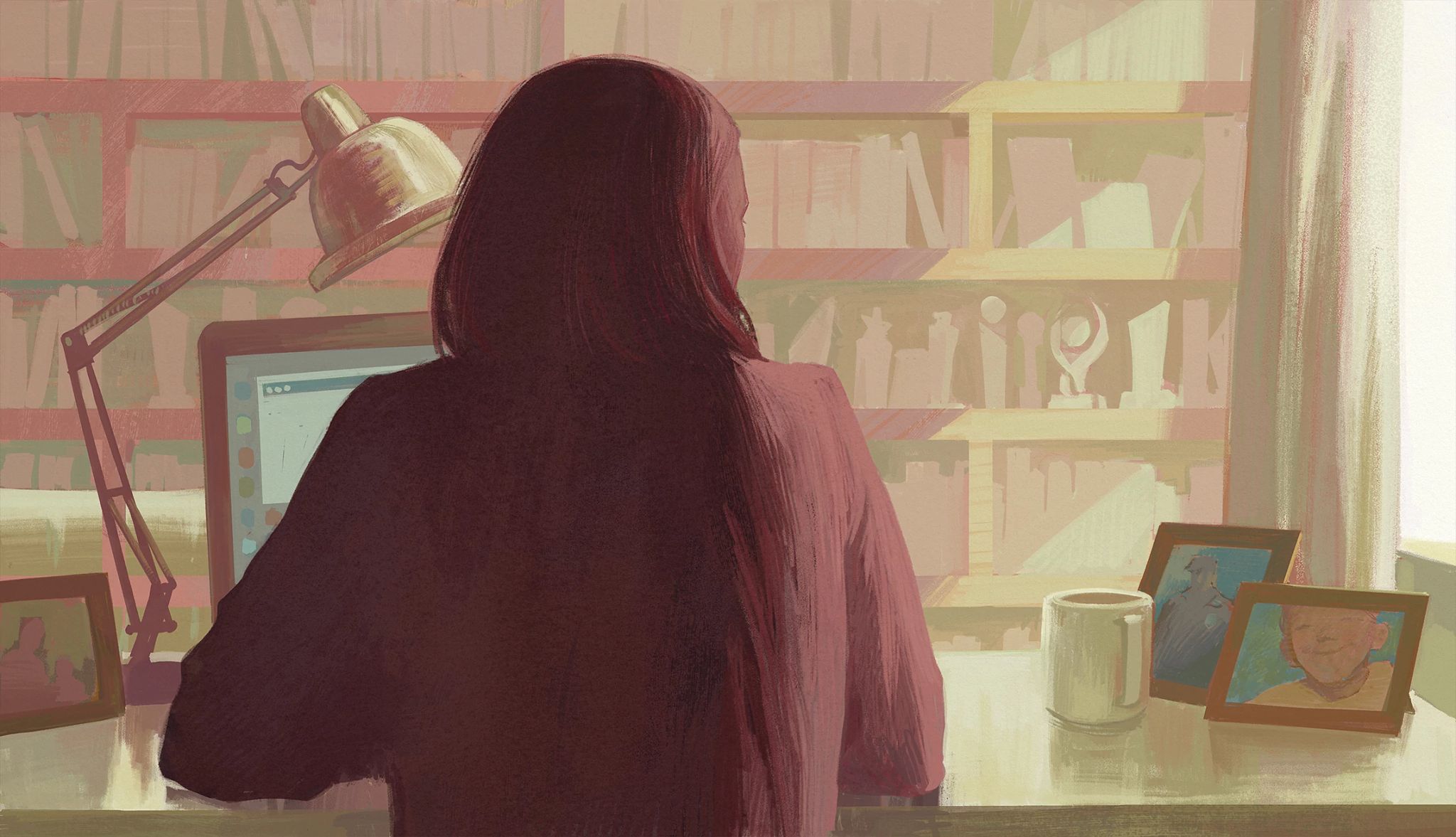
Prologue
Dr. Greg Moran was pushing three-year-old Timmy on the swing in the playground on East Fifteenth Street in Manhattan, not far from the apartment.
“Two-minute warning,” he laughed as he gave another push, just strong enough to satisfy his daredevil son, but not strong enough to risk having the seat flip over the top of the swing. A long time ago he had witnessed that scene. No one was hurt, because it was a child safety seat. Even so, with the long arms that went with his six-foot-three frame, Greg was always super careful when Timmy was on these swings. As an emergency room doctor, he was all too familiar with freak accidents.


LIMITED TIME OFFER: Labor Day Sale!
Join AARP for just $9 per year with a 5-year membership and get a FREE Gift!
It was half past six, and the evening sun was sending long shadows across the playground. Now there was even a slight chill in the air, a reminder that Labor Day was next weekend. “One-minute warning,” Greg called firmly. Before bringing Timmy to the playground, Greg had been on duty for twelve hours, and the always busy emergency room had been absolutely chaotic. Two cars filled with teenagers racing each other on First Avenue had collided and crashed. Incredibly, no one had been killed, but there were three kids with very serious injuries.
Greg took his hands off the swing. It was time to let it slow down and stop. The fact that Timmy didn’t attempt a futile protest meant that he must be ready to go home, too. Anyhow, they were now the last ones in the playground.
“Doctor!”
Greg turned to face a powerfully built man of average height with a scarf covering his face. The gun he was holding was aimed at Greg’s head. In an instinctive movement Greg took a long step to the side to get as far away from Timmy as possible. “Look, my wallet is in my pocket,” he said quietly. “You’re welcome to it.”
“Daddy.” Timmy’s tone was frightened. He had twisted in the seat and was staring into the eyes of the gunman.
In his final moment on earth, Greg Moran, age thirty-four, distinguished physician, dearly loved husband and father, tried to throw himself on his attacker but had no chance to escape the fatal shot that hit with deadly accuracy the center of his forehead.
“DADDYYYYYYYY!” Timmy wailed.
The assailant ran to the street, then stopped and turned. “Timmy, tell your mother that she’s next,” he shouted. “Then it’s your turn.”
The gunshot and the shouted threat were heard by Margy Bless, an elderly woman on her way home from her part-time job in the local bakery. She stood for long seconds absorbing the nightmarish event: the fleeing figure turning the corner, the gun dangling from his hand, the screaming child on the swing, the crumpled figure on the ground.
Her fingers trembled so badly it took three tries before she was able to punch in 911.
When the operator answered, Margy could only moan, “Hurry! Hurry! He may come back! He shot a man, then he threatened the child!”
Her voice trailed off as Timmy shrieked, “Blue Eyes shot my daddy ... Blue Eyes shot my daddy!”
Chapter 1
Laurie Moran looked out the window of her office on the twenty-fifth floor of 15 Rockefeller Center. Her view was of the skating rink in the middle of that famous Manhattan complex. It was a sunny but cold March day, and from her vantage point she could see beginners there, wobbling unsteadily on their skates, and in sharp contrast others who moved across the ice with the grace of ballet dancers.
Timmy, her eight-year-old son, loved ice hockey and planned to be good enough to play with the New York Rangers by the time he was twenty-one. Laurie smiled as her mind filled with the image of Timmy’s face, his expressive brown eyes sparkling with delight as he imagined himself in the position of goalie in future Rangers games. He’ll be the image of Greg by then, Laurie thought, but quickly gave herself a mental shake and turned her attention to the file on her desk.
Thirty-six years old, with shoulder-length hair the color of honey, hazel eyes more green than brown, a slim build, and classic features untouched by makeup, Laurie was the kind of woman people turned to take a second look at when she passed by. “Classy and good- looking” was a typical description of her.
An award-winning producer at Fisher Blake Studios, Laurie was about to launch a new cable series, one that she had had in mind even before Greg died. Then she had put it away—she felt people might think she had conceived it because of his unsolved murder.
The premise involved reenacting unsolved crimes, but instead of using actors, gathering the friends and relatives of the victims to hear from their lips their version of what had happened when the crime occurred. Whenever possible, the actual setting of the crime would be used. It was a risky venture—with great potential for success and also for chaos.
She had just come from a meeting with her boss, Brett Young, who had reminded her that she’d sworn she would never touch another reality show. “Your last two were expensive flops, Laurie,” he said. “We can’t afford another one.” Then he pointedly added, “Neither can you.”
Now as Laurie sipped the coffee she had carried in with her from the two o’clock meeting, she thought of the passionate argument she had used to persuade him. “Brett, before you remind me again how sick you are of reality series, I promise you this one will be different. We’ll call it Under Suspicion. On page two of the folder I gave you is a long list of unsolved criminal cases and others supposedly solved where there is a real possibility the wrong person went to prison.”
Laurie glanced around her office. The glance reinforced her determination not to lose it. It was large enough to have a couch under the windows and a long bookcase that showcased memorabilia, awards she had won, and family pictures, mostly of Timmy and her father. She had long ago decided that her pictures of Greg belonged at home in her bedroom, not here where they would inevitably bring to everyone’s mind the fact that she was a widow, and her husband’s murder had never been solved.
“The Lindbergh kidnapping is the first on your list. That happened about eighty years ago. You’re not planning to reenact that, are you?” Brett had asked.
Laurie told him it was an example of a crime that people talked about for generations because of its horror, but also because there were still so many lingering questions about the case. Bruno Hauptmann, an immigrant from Germany who was executed for kidnapping the Lindbergh baby, was almost certainly the one who made the ladder that went to the baby’s bedroom. But how did he know the nanny went to dinner every night and left the baby alone for forty-five minutes at exactly that time? How did Hauptmann know that—or who told him?
Then she told Brett about the unsolved murder of one of the identical twin daughters of Senator Charles H. Percy. It happened at the beginning of his first campaign for the Senate in 1966. He was elected, but the crime was never solved, and the questions remained: was the sister who was murdered the intended victim? And why didn’t the dog bark if a stranger had entered the house?
Now Laurie leaned back in her chair. She had told Brett the point is that when you start to mention cases like this, everyone has a theory about it. “We’ll do a reality show about crimes that are anywhere from twenty to thirty years old, where we can get the point of view of the people who were closest to the victim, and I have the perfect case for the first show: the Graduation Gala,” she’d said.
That’s when Brett really got interested, Laurie thought. Living in Westchester County, he knew all about it: Twenty years ago, four young women who grew up together in Salem Ridge graduated from four different colleges. The stepfather of one of them, Robert Nicholas Powell, gave what he called a “Graduation Gala” to honor all four girls. Three hundred guests, black tie, champagne and caviar, fireworks, you name it. After the party, his stepdaughter and the other three graduates stayed overnight. In the morning, Powell’s wife, Betsy Bonner Powell, a popular, glamorous forty-two-year-old socialite, was found suffocated in her bed. The crime was never solved. Rob, as Powell was known, was now seventy-eight years old, in excellent physical and mental shape, and still living in the house. Powell never remarried, Laurie thought. He had recently given an interview on The O’Reilly Factor in which he said he would do anything to clear up the mystery of his wife’s death, and he knew that his stepdaughter and her friends all felt the same way. They all believed that until the truth came out, people would wonder if one of them was the murderer who took Betsy’s life.
That’s when I got the go-ahead from Brett to contact Powell and the four graduates to see if they would participate, Laurie thought exultantly.
It was time to share the good news with Grace and Jerry. She picked up her phone and told her two assistants to come in. A moment later the door of her office flew open.
Grace Garcia, her twenty-five-year-old administrative assistant, was wearing a short red wool dress over cotton leggings and high-button boots. Her waist-length black hair was twisted up and clamped with a comb. Tendrils that had escaped from the comb framed her heart-shaped face. Heavy but expertly applied mascara accentuated her lively dark eyes.
Jerry Klein was one step behind Grace. Long and lanky, he settled into one of the chairs at Laurie’s desk. As usual, he was wearing a turtleneck and a cardigan sweater. It was his claim that he intended to make his one dark blue suit and his one tuxedo last for twenty years. Laurie had no doubt that he would succeed. Now twenty-six, he had joined the company as a summer intern three years earlier. He had turned out to be an indispensable production assistant.
“I won’t keep you in suspense,” Laurie announced. “Brett gave us the go-ahead.”
“I knew he would!” Grace exclaimed.
“I knew he had from the expression on your face when you got off the elevator,” Jerry insisted.
“No you didn’t. I have a poker face,” Laurie told him. “All right, the first order of business is for me to contact Robert Powell. If I get the go-ahead from him, from what I saw in that interview he gave, his stepdaughter and her three friends will very likely go along with us.”
“Especially since they’ll get paid very well to cooperate, and not one of them has any real money,” Jerry said, his voice thoughtful as he recalled the background information he had gathered for the potential series. “Betsy’s daughter, Claire Bonner, is a social worker in Chicago. She never married. Nina Craig is divorced, lives in Hollywood, makes a living as an extra in films. Alison Schaefer is a pharmacist in a small drugstore in Cleveland. Her husband is on crutches. He was the victim of a hit-and-run driver twenty years ago. Regina Callari moved to St. Augustine, Florida. She has a small real estate agency. Divorced, one child in college.”
“The stakes are high,” Laurie cautioned. “Brett has already reminded me that the last two series were flops.”
“Did he mention that your first two are still running?” Grace asked, indignant.
“No, he didn’t, and he won’t. And I feel in my bones that we have a potential winner with this one. If Robert Powell goes along with us, I almost bet the others will as well,” Laurie said, then added fervently, “At least I hope and pray that they will.”
Chapter 2
First Deputy Commissioner Leo Farley of the New York Police Department had been rumored to be appointed the next police commissioner when he unexpectedly put in his retirement papers the day after his son-in-law’s funeral. Now, more than five years later, Leo had never looked back at that decision. At sixty-three, he was a cop to his fingertips. He’d always planned to be one until he hit mandatory retirement, but something more important had changed his plans. The shocking, cold-blooded murder of Greg and the threat that the elderly witness had overheard—“Timmy, tell your mother that she’s next, then it’s your turn”—had been sufficient reason to decide to dedicate his life to protecting his daughter and grandson. Ramrod straight, average height, with a full head of iron-gray hair and a wiry, disciplined body, Leo Farley spent his waking hours on constant alert.
He knew that there was only so much he could do for Laurie. She had a job she both needed and loved. She took public transportation, went for long jogs in Central Park, and in warm weather often ate lunch in one of the pocket parks near her office.
Timmy was another matter. In Leo’s mind there was nothing to prevent Greg’s killer from deciding to go after Timmy first, so he appointed himself as his guardian. It was Leo who walked Timmy to Saint David’s School every morning, and it was Leo who was waiting for him at dismissal time. If Timmy had activities after school, Leo unobtrusively stood guard beside the skating rink or the playground.
To Leo, Greg Moran was the son he would have created for himself, if that had been possible. It was now ten years since they had met in the emergency room at Lenox Hill Hospital. He and Eileen had frantically rushed there after they received the call that their twenty-six-year-old daughter, Laurie, had been hit by a cab on Park Avenue and was unconscious.
Greg, tall and impressive even in his green hospital togs, had greeted them with the firm assurance, “She’s come to, and she’ll be fine. A broken ankle and a concussion. We will observe her, but she’ll be fine.”
At those words, Eileen, desperate with worry about her only child, had fainted, and Greg had another patient on his hands. He grabbed Eileen quickly before she fell. He never left our lives again, Leo thought. He and Laurie were engaged three months later. He was our rock when Eileen died, only a year after that.
How could anyone have shot him? The exhaustive investigation had left no stone unturned to find someone who might have had a grudge against Greg, unthinkable as that was to anyone who knew him. After they had quickly eliminated friends and classmates from consideration, the records had been scoured in the two hospitals where Greg had worked as a resident and staff director to see if any patient or a family member had ever accused him of a mistaken diagnosis or treatment that had resulted in a permanent injury or death. Nothing had come to light.
In the DA’s office the case was known as the “Blue Eyes Murder.” Sometimes an expression of alarm would come over Timmy’s face if he happened to suddenly turn and look directly into Leo’s face. Leo’s eyes were a light china-blue shade. He was sure, and both Laurie and the psychologist agreed, that Greg’s killer must have had large, intense blue eyes.
Laurie had discussed with him her concept for a new series, leading with the Graduation Gala murder. Leo kept his dismay to himself. The idea of his daughter gathering together a group of people, one of whom was probably a murderer, was alarming. Someone had hated Betsy Bonner Powell enough to hold a pillow over her head until the last breath had been squeezed from her body. That same person probably had a passion for self-preservation. Leo knew that twenty years ago all four young women, and Betsy’s husband, had been interrogated by the best-of-the-best homicide detectives. Unless someone had managed to make his or her way into the house undetected, if the series was given the green light, the murderer and suspects would all be together again—a dangerous proposition.
All this was in Leo’s mind as he and Timmy walked home from Saint David’s on Eighty-ninth Street off Fifth Avenue to the apartment, eight blocks away on Lexington Avenue and Ninety-fourth Street. After Greg’s death Laurie had moved immediately, unable to bear the sight of the playground where Greg had been shot.
A passing police cruiser slowed as it drove by. The officer in the passenger seat saluted Leo.
“I like it when they do that to you, Grandpa,” Timmy announced. “It makes me feel safe,” he added matter-of-factly.
Be careful, Leo warned himself. I’ve always told Timmy that if I wasn’t around and he or his friends had a problem they should run to a police officer and ask for help. Unconsciously, he tightened his grip on Timmy’s hand.
“Well, you haven’t had any problems that I couldn’t solve for you.” Then he added carefully, “At least as far as I know.”
They were walking north on Lexington Avenue. The wind had shifted and felt raw against their faces. Leo stopped and firmly pulled Timmy’s woolen cap down over his forehead and ears.
“One of the guys in the eighth grade was walking to school this morning and some guy on a bike tried to grab his cell phone out of his hand. A policeman saw it and pulled the guy over,” Timmy said.
It hadn’t been an incident involving someone with blue eyes. Leo was ashamed to admit to himself how relieved that made him. Until Greg’s killer was apprehended, he needed to know that Timmy and Laurie were safe.
Someday justice will be served, he vowed to himself. This morning, as she hurried out to work seconds after he arrived, Laurie had said that she was going to hear the verdict on the reality show she was proposing. Leo’s mind moved restlessly to that concern. He knew he would have to wait for the news until tonight. Over their second cup of coffee, when Timmy had finished dinner and was curled up in the big chair with a book, she would discuss it with him. Then he would leave for his own apartment a block away. At the end of the day, he wanted Laurie and Timmy to have their own space, and he was satisfied that no one would get past the doorman in their building without a phone call to the resident they claimed to be visiting.
If she got the go-ahead to do that series, it’s going to be bad news, Leo thought.
A man with a hooded sweatshirt, dark sunglasses, and a canvas bag on his shoulder, seeming to come out of nowhere, darted past him on roller skates, almost knocking over Timmy, then brushing a very pregnant young woman who was about ten feet ahead of them.
“Get off the sidewalk,” Leo shouted as the skater turned the corner and disappeared.
Behind the dark sunglasses, bright blue eyes glittered, and the skater laughed aloud.
Such encounters fed his need for the sense of power he felt when he literally touched Timmy and knew that on any given day he could carry out his threat.
Chapter 3
Robert Nicholas Powell was seventy-eight years old but looked and moved like a man ten years younger. A full head of white hair framed his handsome face. His posture was still erect, although he was no longer over six feet tall. He had an air of authority that was instantly apparent to anyone in his presence. Except for Fridays, he still put in a full day at his Wall Street office, chauffeured back and forth by his longtime employee, Josh Damiano.
Today, Tuesday, March 16, Rob had made the decision to stay home and meet television producer Laurie Moran here in Salem Ridge instead of in his office. She had told him the reason for her visit and had couched it in an intriguing premise: “Mr. Powell, I believe that if you, your stepdaughter, and her friends agree to re-create the events of the Graduation Gala, the public will understand how incredible it is that any one of you could have been responsible for your wife’s death. You had a happy marriage. Everyone who knew you knew that. Your stepdaughter and her mother were very close. The other three graduates had been in and out of Betsy’s home from the time they were in high school, and then, when you and Betsy were married, you made them always feel welcome. You have a very large house, and with so many people at the party, there is every possibility that an intruder went undetected. Your wife was known to have beautiful and expensive jewelry. She was wearing her emerald earrings and necklace and ring that night.”
“The tabloids turned a tragedy into a scandal.” Robert Powell remembered his bitter retort to Laurie Moran. Well, she’ll be here soon, he thought. So be it.
He was sitting at the desk in his spacious downstairs office. Large windows looked out over the back gardens of the estate. A beautiful sight in spring and summer and early fall, Rob thought. When it was snowing, that bare and naked view was softened and sometimes magical but on a damp, cold, sunless winter day in March, when the trees were bare and the pool covered and the pool house was shuttered, no amount of expensive planting could soften the stark reality of the winter landscape.
His padded desk chair was very comfortable, and Rob, smiling to himself, pondered the secret that he did not share with anyone. He was sure that sitting behind the impressive antique mahogany desk with the elaborate carvings on the sides and legs lent even more prestige to the image he had so carefully cultivated. It was an image that began the day he left Detroit at age seventeen to begin his freshman year as a scholarship student at Harvard. There, he referred to his mother as a college professor and his father as an engineer; in fact she was a kitchen worker at the University of Michigan and he was a mechanic at the Ford plant.
Rob smiled, remembering how in his sophomore year he had bought a book on table manners, purchased a box of battered silver-plated table settings, and practiced using unfamiliar utensils such as a fish knife until he was sure he was comfortable with them. Following graduation, an internship at Merrill Lynch began his career in the financial world. Now, despite a few rocky years along the way, the R. N. Powell Hedge Fund was considered one of the best and safest investments on Wall Street.
At precisely eleven o’clock the sound of the chimes at the front door announced the arrival of Laurie Moran. Rob straightened his shoulders. Of course he would get up when she was escorted into his office, but not until she had seen him seated at his desk. He realized how curious he was to meet her. It was hard to tell her age from her voice over the phone. There was a crisp, matter-of-fact note in the way she had introduced herself, but then her tone had become sympathetic when she spoke about Betsy’s death.
After their conversation he had googled her. The fact that she was the widow of the doctor who had been shot in the playground and that she had an impressive background as a producer intrigued him. Her picture showed her to be a very attractive woman. I’m not too old to appreciate that, Rob thought.
There was a tap on the door, and Jane, who had been his housekeeper from the time he married Betsy, opened it and stepped into the room, followed by Laurie Moran.
“Thank you, Jane,” Rob said, and waited until Jane had left, closing the door behind her, before he got up. “Ms. Moran,” he said courteously. He extended his hand to Laurie and indicated the chair on the other side of the desk.
ROBERT POWELL COULD NOT KNOW THAT LAURIE was thinking, Well, this is it, as with a warm smile she settled in the chair. The housekeeper had taken her coat when she arrived. She was wearing a navy pin-striped pantsuit, white shell blouse, and navy leather boots. Her only jewelry was a pair of small pearl earrings and her gold wedding band. She had pulled her hair back and pinned it into a French knot, a style that made her feel more efficient.
Within five minutes she was sure that Robert Powell had already decided to go ahead with the program, but it took him ten minutes before he confirmed that fact.
“Mr. Powell, I’m thrilled that you are willing to let us re-create the night of the Graduation Gala. Now, of course, we will need the cooperation of your stepdaughter and her friends. Will you help me persuade them to participate?”
“I’m happy to do that, although obviously I can’t speak for any of them.”
“Have you stayed close to your stepdaughter since your wife died?”
“No. Not that I haven’t wanted to stay close. I was and am very fond of Claire. She lived here from the time she was thirteen until she was twenty-one. Her mother’s death was a terrible shock for her. I don’t know how much you studied her background, but her mother and father were never married. He took off when Betsy became pregnant with Claire. Betsy was doing bit parts on Broadway and when she wasn’t acting she worked as an usher there. It was hardscrabble for her and Claire until I came along.”
Then he added, “Betsy was beautiful. I’m sure she could have easily married someone along the way, but after her experience with Claire’s father, I know she was gun-shy.”
“I can understand that,” Laurie said, nodding.
“I can, too. Never having had children, I thought of Claire as my own daughter. It hurt when she moved out so quickly after Betsy’s death. But I think that between us there was too much grief to hold under one roof, and she sensed it immediately. As I’m sure you know, she lives in Chicago and is a social worker there. She never married.”
“She never came back here?”
“No, and never accepted my offer of generous financial help. She returned my letters torn up.”
“Why do you think she did that?” Laurie asked. “She was fiercely jealous of my relationship with her mother. Don’t forget, it was just the two of them for thirteen years.”
“Then do you think she’ll refuse to take part in the program?”
“No, I don’t. Every so often an enterprising reporter has written about the case, and some of them have quoted Claire or one of the other girls. What they have said has been uniform. They all feel as though people look at them with questions in their eyes, and they’d all like an end to it.”
“We’re planning to offer each of them $50,000 for being on the program,” Laurie told him.
“I’ve kept track of all of them. There isn’t one who couldn’t use financial help. In order to ensure that they accept, I authorize you to say that I am prepared to pay each one of them a quarter of a million dollars for their cooperation.”
“You would do that?” Laurie exclaimed.
“Yes, and tell me anyone else you will want to interview on your program.”
Laurie said, “Of course, I will want to interview your housekeeper.”
“Give her the $50,000 you’re giving the others and I’ll give her another $50,000. I’ll make sure she does it. It is not necessary that she be paid the same as the others. I am seventy-eight years old and have three stents in the arteries leading to my heart. I know that, like the girls, I am under suspicion—or do you call it a ‘person of interest’ these days? Before I die, I want to sit in a courtroom and see Betsy’s murderer sentenced to prison.”
“You never heard any sound from her room?”
“No. As I’m sure you’re aware, we shared a suite. The sitting room was in the middle, our bedrooms on either side. I confess I am a heavy sleeper and snore very loudly. When we said good night, I went to my bedroom.”
THAT EVENING LAURIE WAITED UNTIL TIMMY WAS deep in his Harry Potter book before she told her father about her meeting with Powell.
“I know I shouldn’t make any judgment yet, but I heard the ring of truth in Powell’s voice when he was talking,” Laurie said. “And his offer to pay the girls a quarter of a million dollars is wonderful.”
“A quarter of a million dollars plus what you pay them,” Leo repeated. “You say that Powell knows all four women could use the money?”
“Yes, that’s what he said.” Laurie realized that she sounded defensive.
“Has Powell helped any of them out along the way, including his stepdaughter?”
“He indicated that he didn’t.”
“I think it’s a question you should look into. Who knows what his real motive may be to hand out all that money.” Leo couldn’t help but question these people’s intentions. It was the cop in him. And the father. And grandfather.
With that, he decided to finish his coffee and go home. I’m getting too jumpy, he thought, and that won’t do either Laurie or Timmy any good. Even the way I shouted at that guy on skates. I was right, he could have hurt someone; but it was the fact that he actually brushed against Timmy that scared me. If he’d had a gun or a knife, even with my hand in Timmy’s, I couldn’t have protected him from an attack fast enough.
Leo knew the grim reality that if a murderer had a grudge against someone, no order of protection or vigilance could keep them from satisfying his need to kill his target.
Chapter 4
Claire Bonner settled at a table in the Seafood Bar of The Breakers Hotel in Palm Beach. She was facing the ocean and watched with detached interest as the waves crashed against the retaining wall directly below the Bar. The sun was shining but the winds were stronger than she had expected in Florida on an early spring day.
She was wearing a newly purchased zippered jacket in a light shade of blue. She had bought it when she noticed that it carried the name of THE BREAKERS on the breast pocket. It was part of the fantasy of spending this long weekend here. Her short ash-blond hair framed a face that was half-hidden by oversized sunglasses. The glasses were seldom off, but when they were, Claire’s beautiful features were revealed, as well as the tranquil expression that had taken her years to achieve. In fact, a discerning observer might have realized that the expression was caused by the acceptance of reality rather than peace of mind. Her slender frame had an aura of fragility as though she had been recently ill. The same observer might have guessed her to be in her mid-thirties. In that case he would have been wrong. She was forty-one.
In the past four days she had had the same polite young waiter and now was greeted by name as he approached her table. “Let me guess, Ms. Bonner,” he said. “Seafood chowder and two large stone crabs.”
“You have it,” Claire said as a brief smile touched the corner of her lips.



























































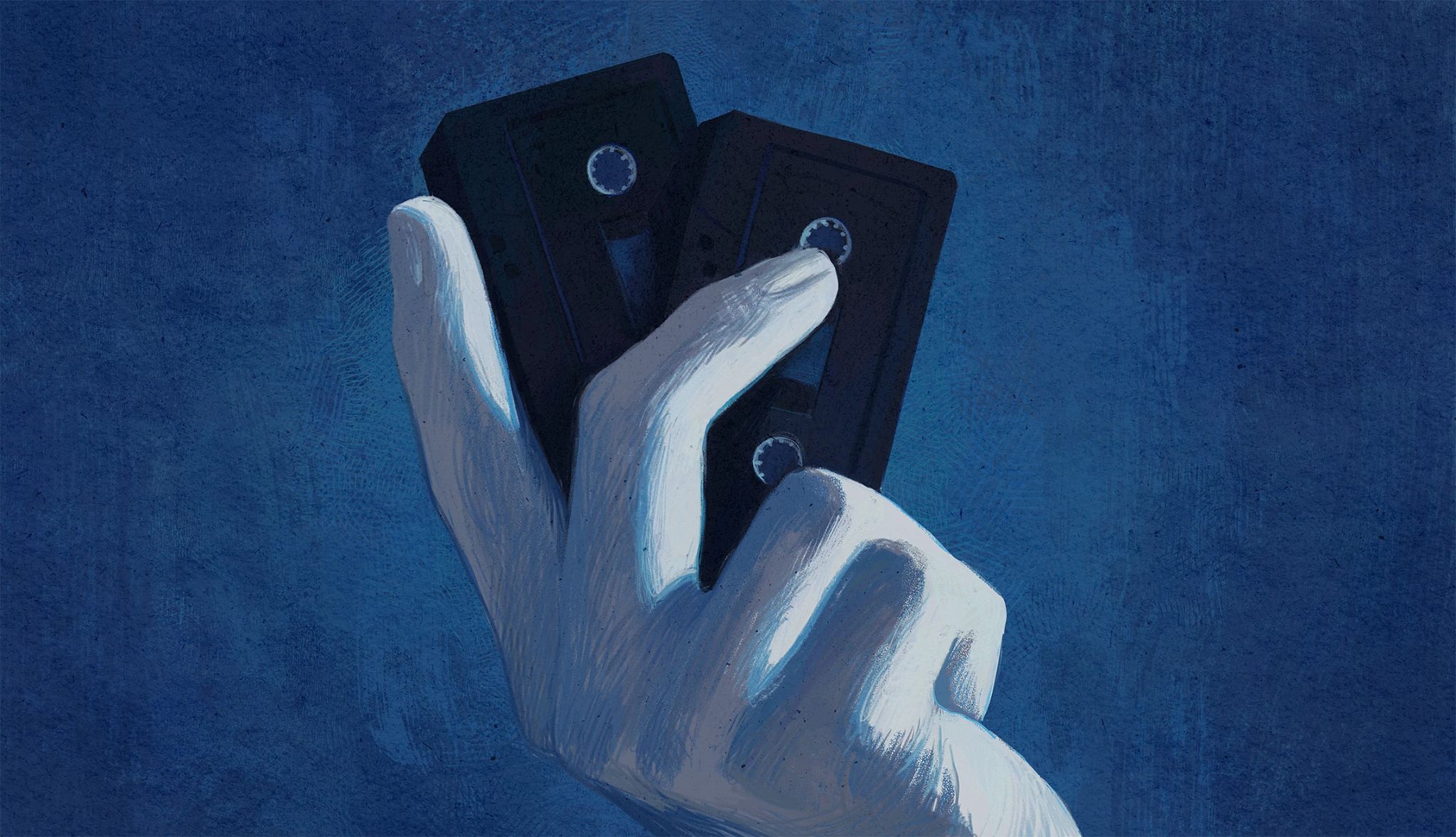
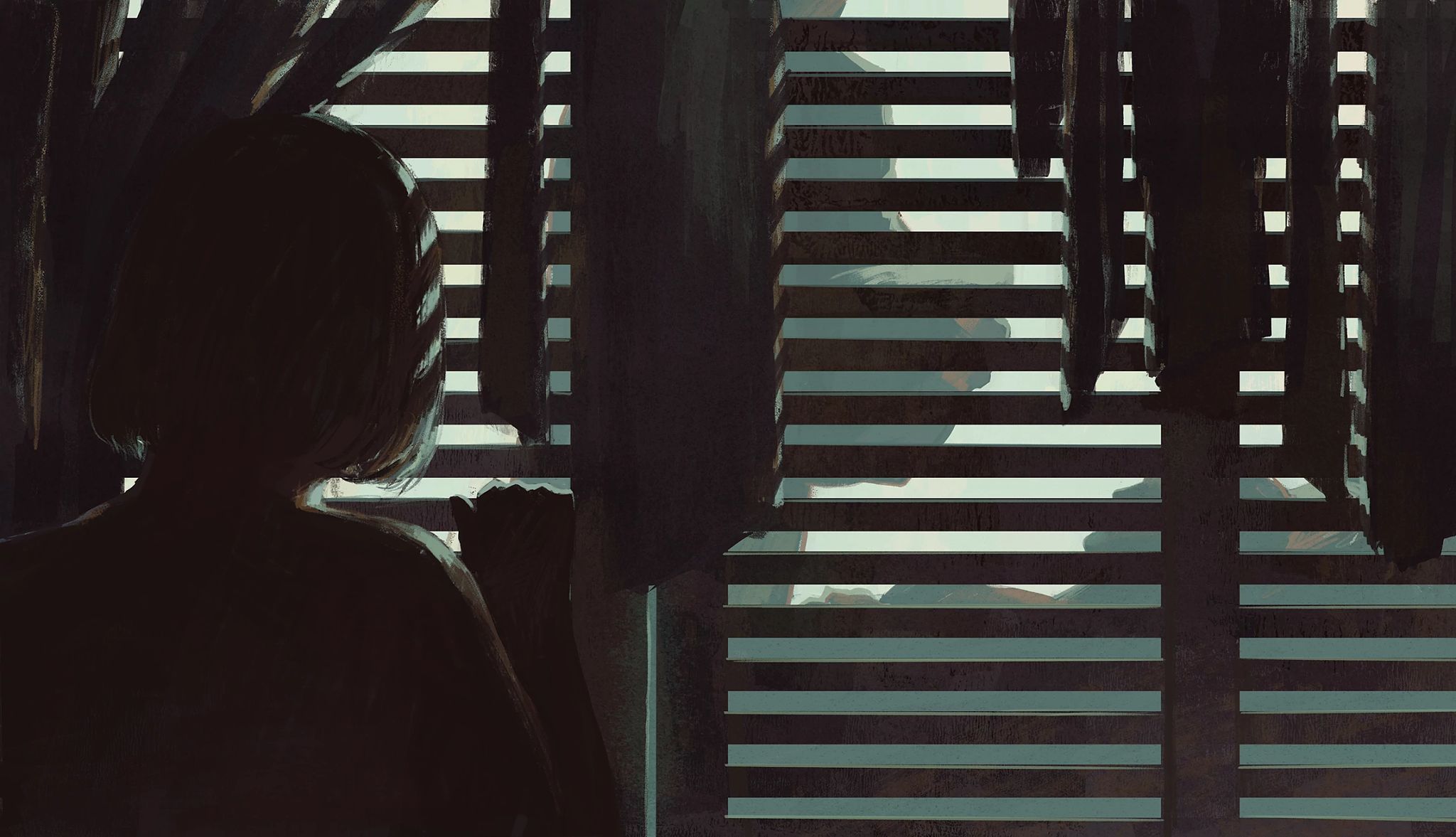
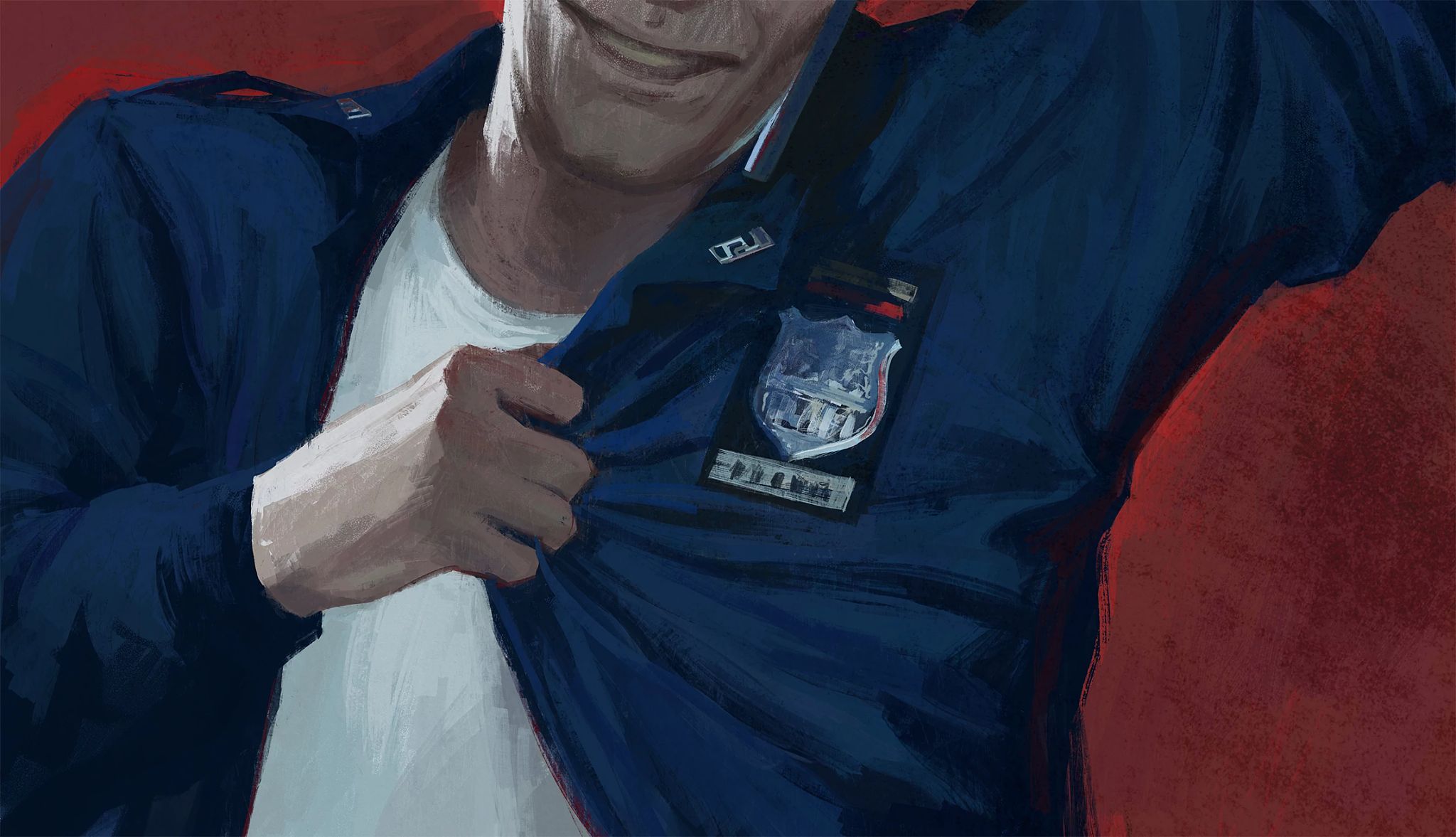
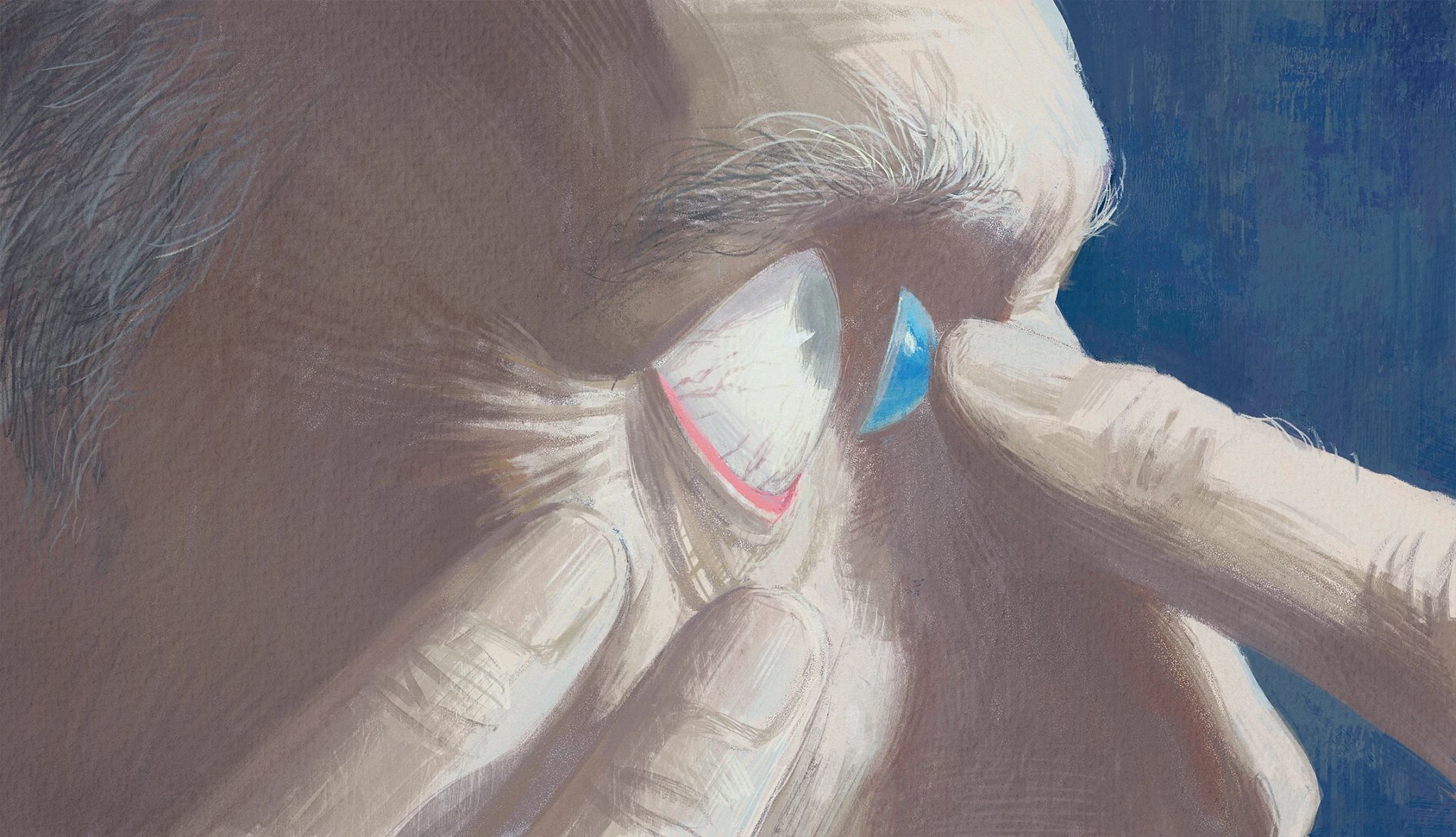
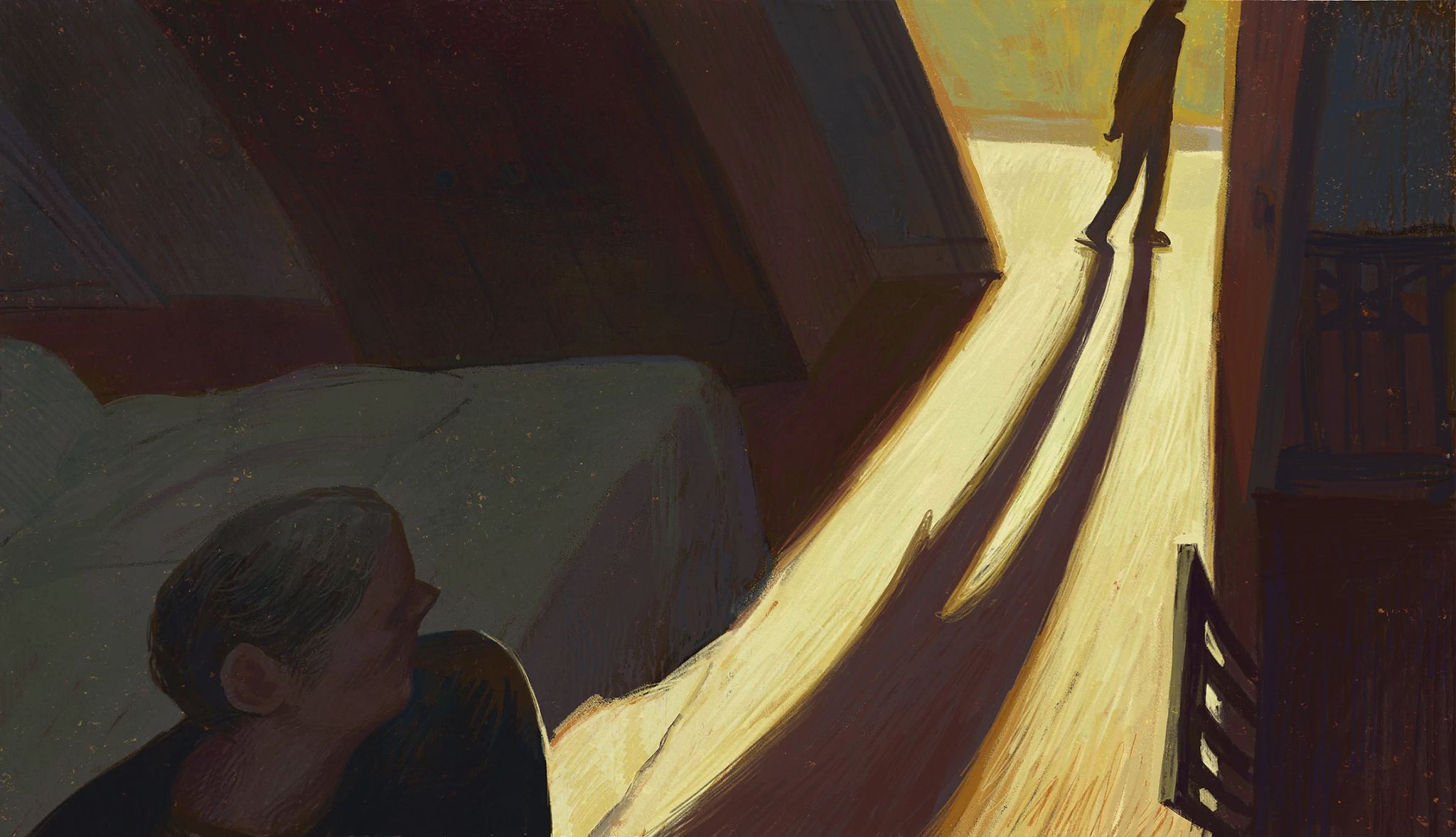
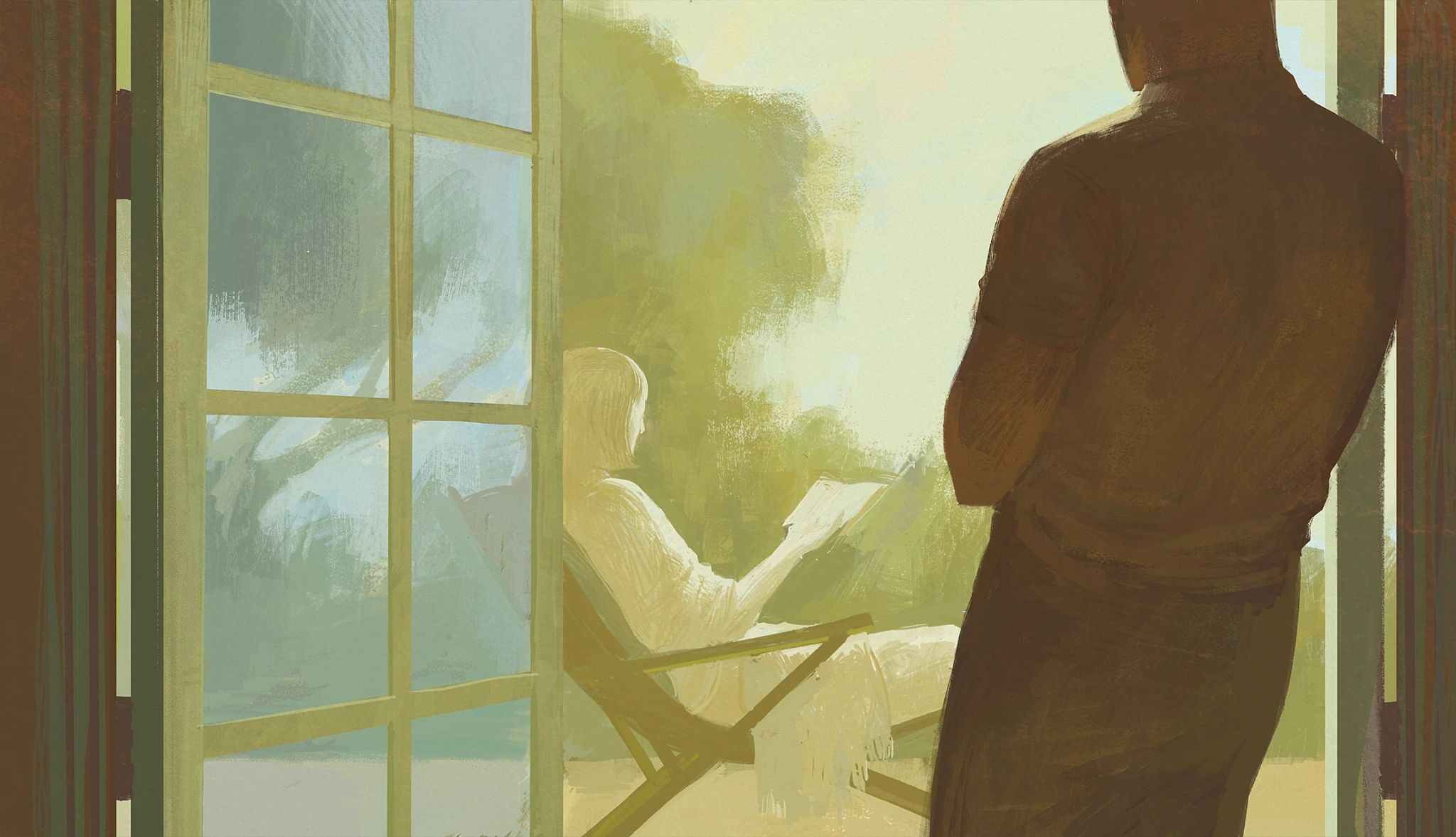
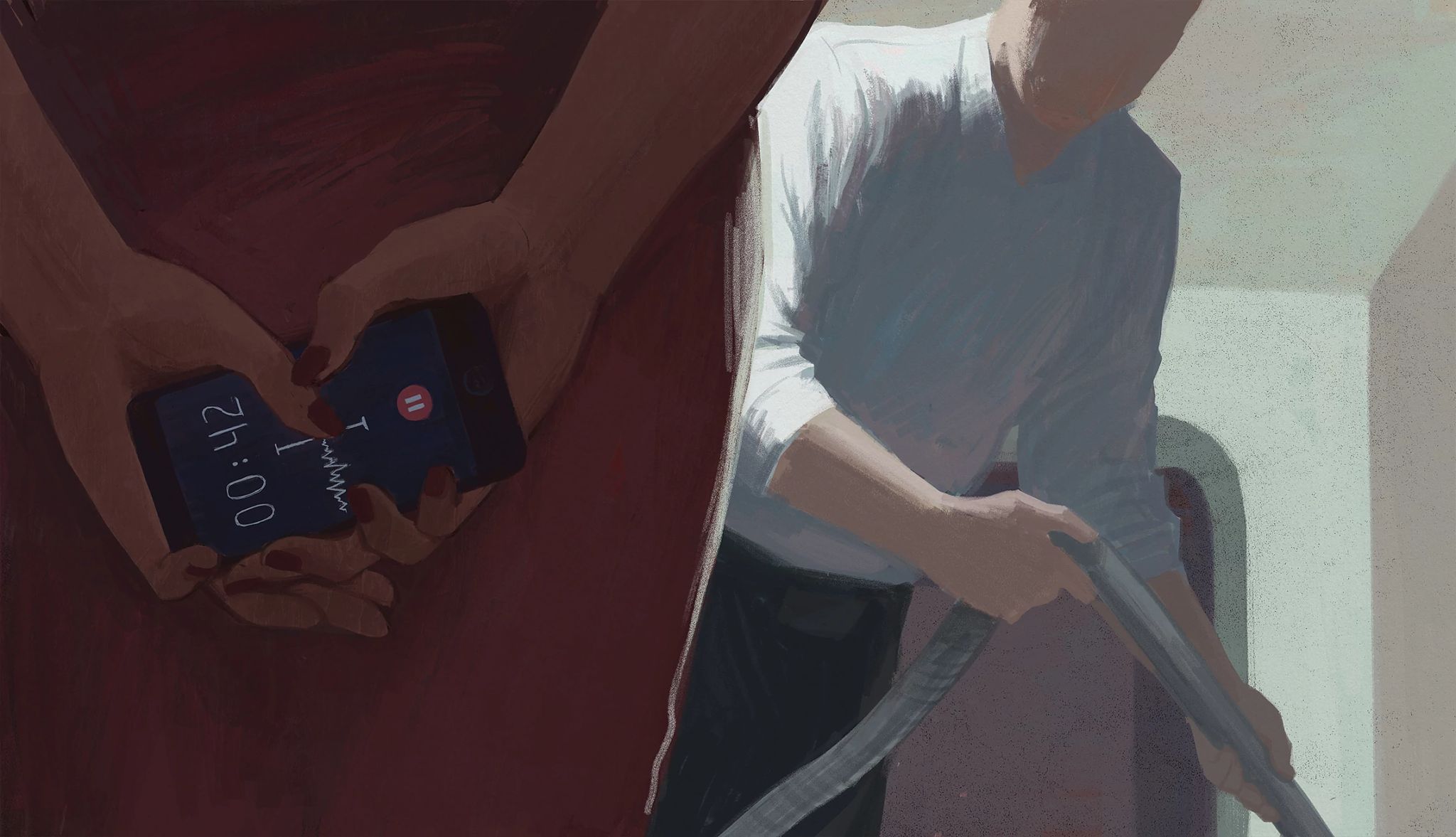
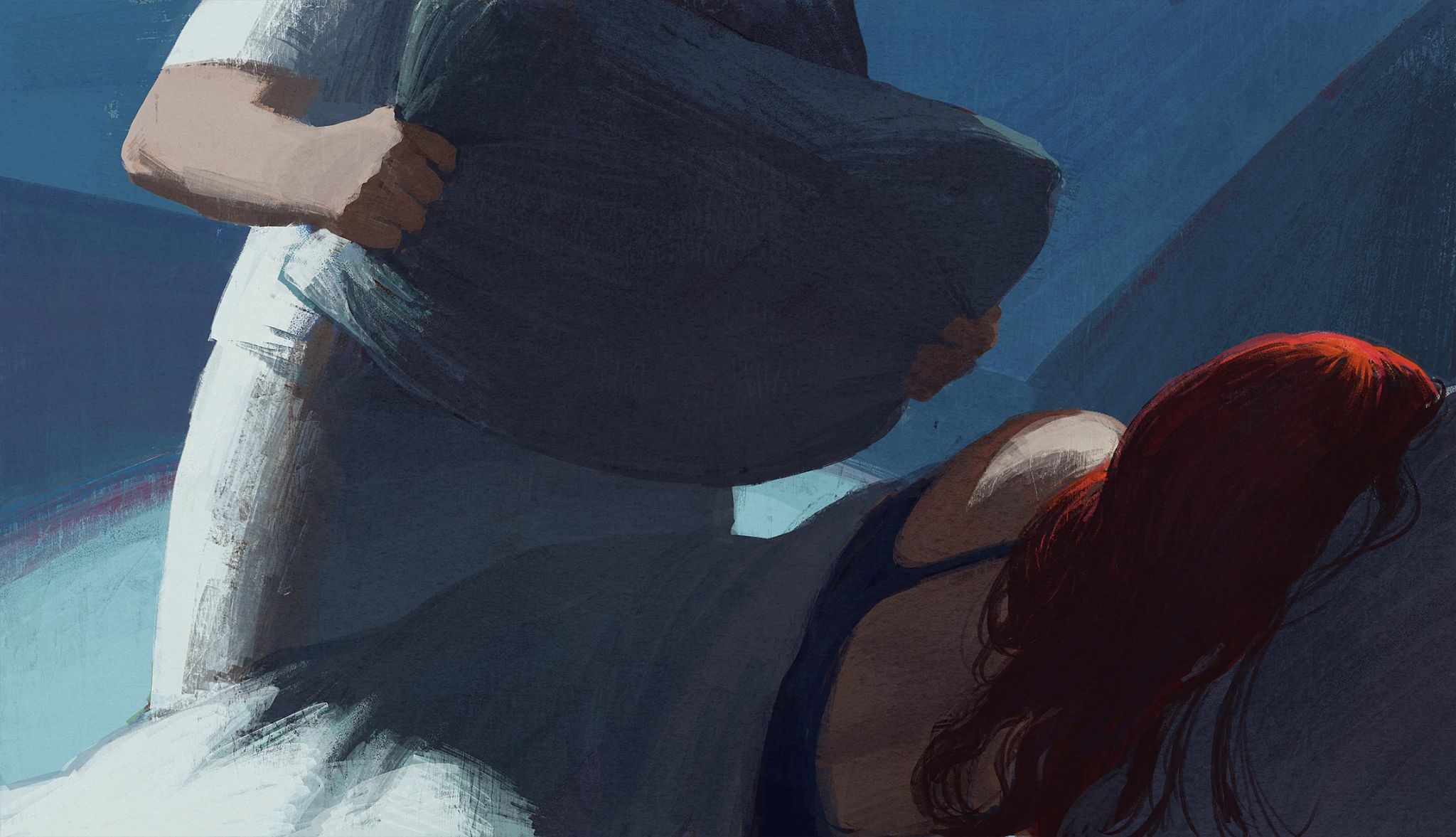




You Might Also Like
Alafair Burke on the Delights of Co-Writing With Mary Higgins Clark
How the two mystery novelists created the celebrated Under Suspicion series and forged a beautiful writing friendship
Free: James Patterson's Novella ‘Chase’
When a man falls to his death, it looks like a suicide, but Detective Bennett finds evidence suggesting otherwise
More Free Books Online
Check out our growing library of gripping mysteries and other novels by popular authors available in their entirety
AARP Members Edition
Your daily source for candid takes on life, guides to living well, tips for saving money, inspiring travel and much more
Recommended for You